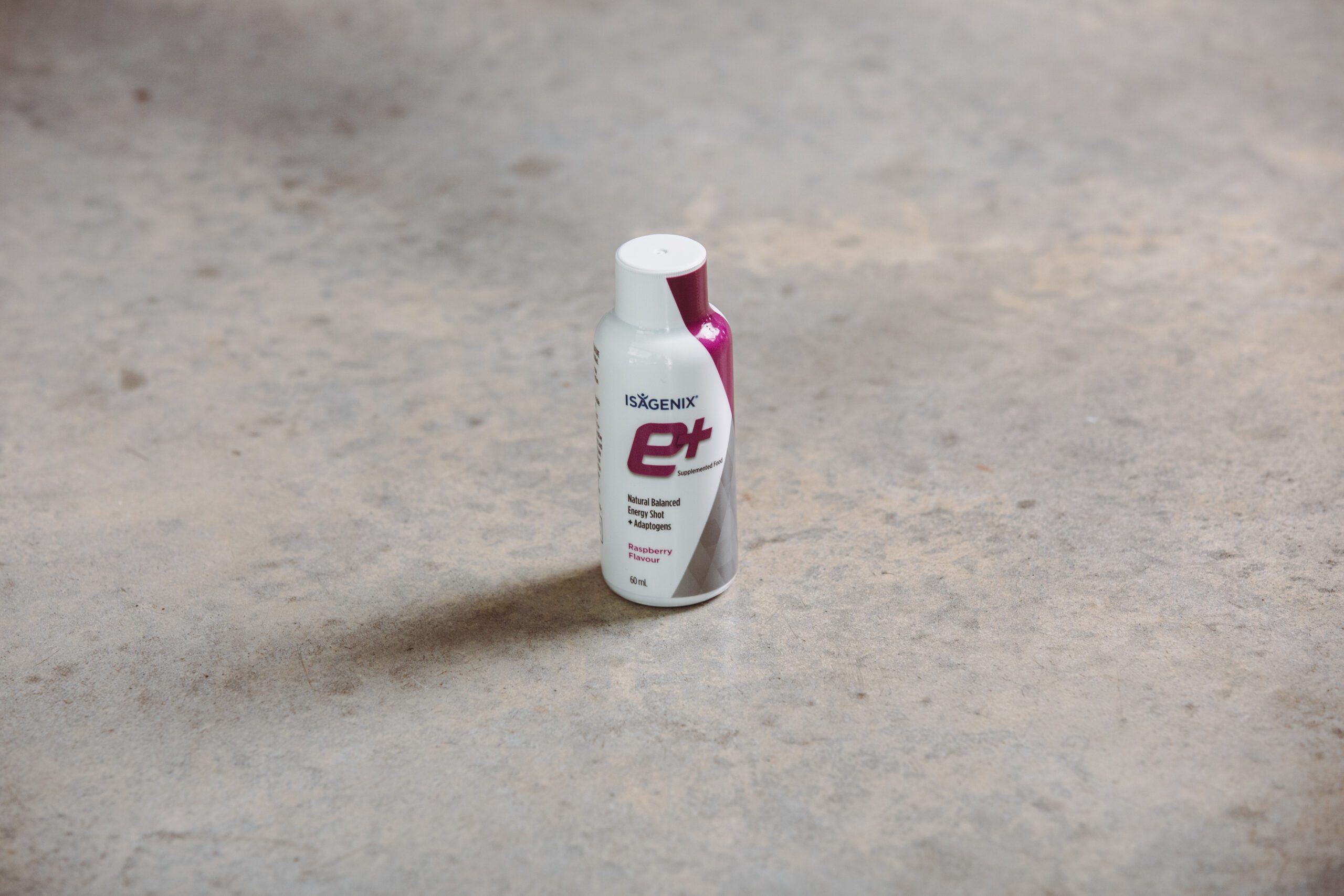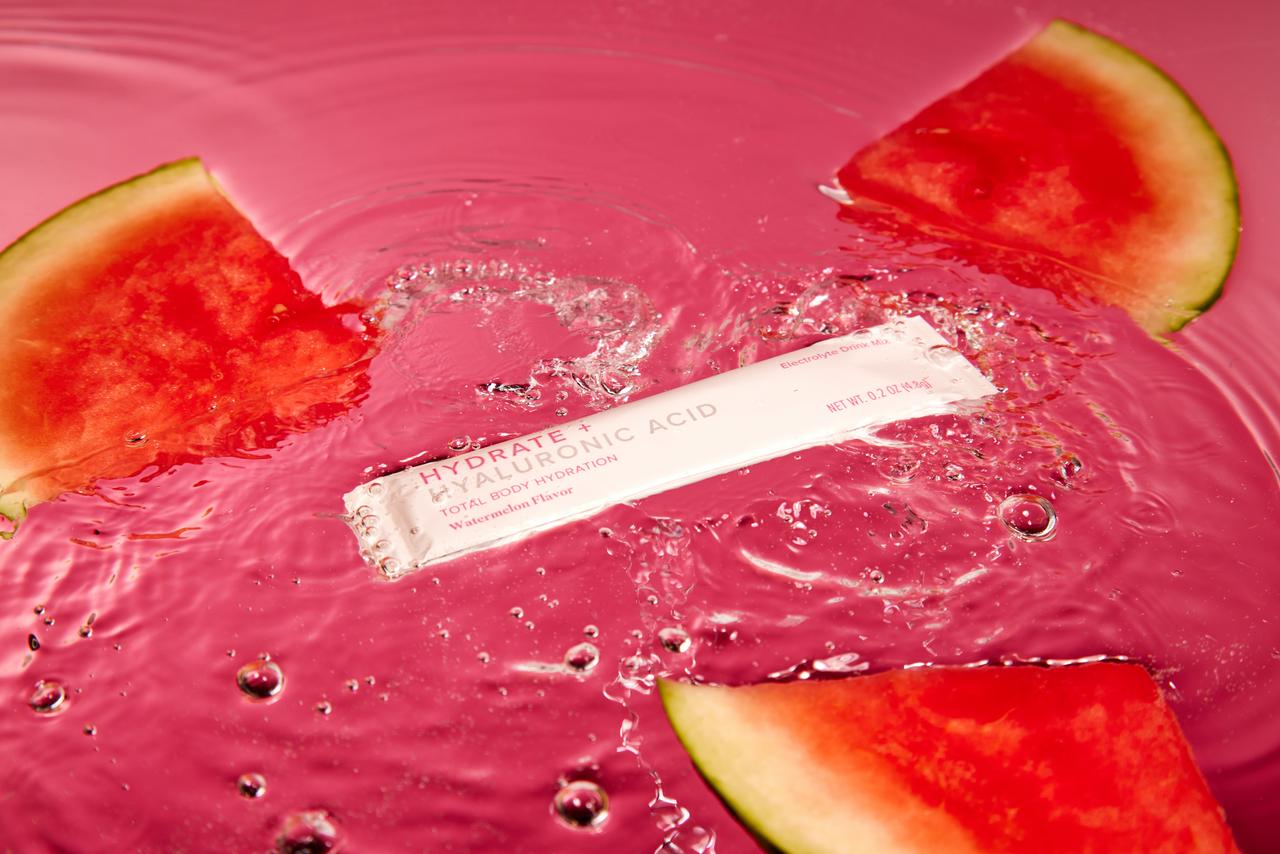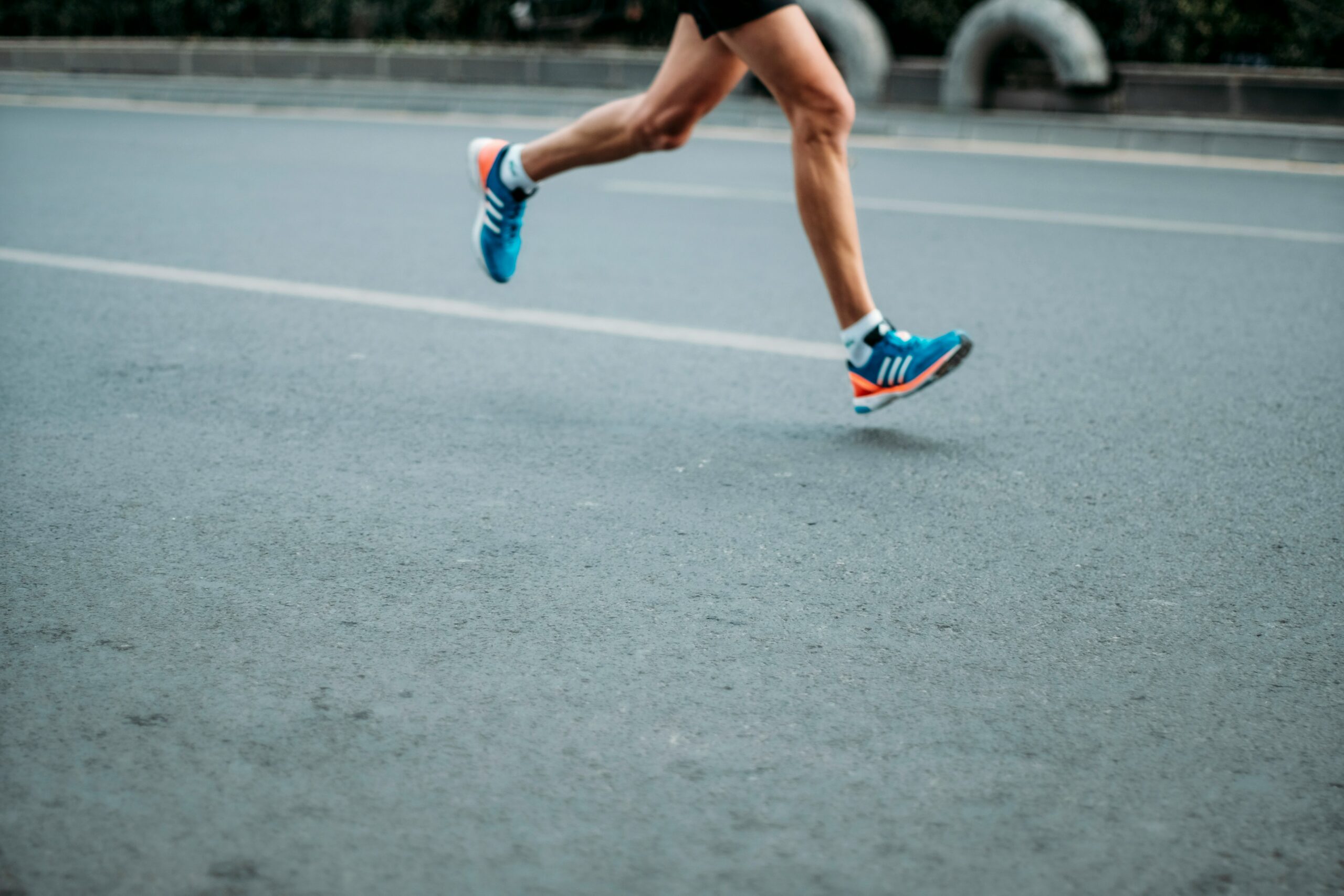Powered by adaptogens and plant-sourced caffeine, e+™ delivers an elevated energy experience with clean ingredients that outperform caffeine alone in a published clinical study.
A Clean Energy Solution Backed by Science
Cheap energy shots are everywhere, from the gas station to the grocery store, but they typically contain ingredients like artificial sweeteners or synthetic caffeine.
With caffeine from green tea and yerba maté, e+ delivers a clean energy solution that is free from artificial flavours, colours, and sweeteners. Each serving of e+ contains a targeted blend of 10 adaptogenic herbs along with 85 milligrams of natural plant-sourced caffeine for both immediate and sustained energy.
This blend of plant-sourced caffeine and adaptogens has been clinically studied and shown to provide greater mental performance benefits compared to a beverage with synthetic caffeine alone. The results of this double-blinded, placebo-controlled, randomised trial were published in the journal Nutrients (1). Further research published in the journal Applied Sciences found that e+ offers greater benefits for cognitive performance among those who are highly stressed or fatigued (2).
Immediate and Sustained Energy From Plant-Sourced Caffeine
Natural, plant-sourced caffeine from yerba maté and green tea provides energy that is fast-acting and long-lasting in an amount that is similar to the amount of caffeine in a small, 8-ounce cup of coffee. When used moderately, caffeine boosts alertness, focus, and physical and mental performance (3). Native to South America, yerba maté is an herbal tea made from dried leaves of the Ilex paraguariensis plant and is a natural source of caffeine. Research has linked yerba maté consumption to many health benefits, largely attributed to its high concentration of bioactive compounds, including polyphenols and flavonoids.
Green tea is made from the leaves of the Camellia sinensis plant and is also a natural source of caffeine. In addition to providing an energy boost, catechins, a group of polyphenols present in green tea extract, have been shown to support metabolism and aid the body’s response to oxidative stress (4, 5).
Fatigue-Fighting Adaptogens
While the caffeine from green tea and yerba maté are key components of e+, the most unique feature is its blend of adaptogenic herbs. Adaptogens are botanical ingredients that to help normalise the body’s response to stress and improve the body’s capacity to perform under physical and mental stress (6, 7).
The adaptogen blend in e+ was inspired by the research of the late Dr. Israel Brekhman, a pioneer in the study of adaptogens. Some of the stress-modulating, fatigue-fighting adaptogens in e+ include:
- Eleuthero (Eleutherococcus senticosus) root: Also known as Siberian ginseng, this thorny shrub has been shown to improve endurance capacity and cardiorespiratory function in clinical trials (8).
- Rhodiola (Rhodiola rosea) root: Native to the arctic and mountainous regions of Europe, Asia, and America, it has been used in traditional Chinese medicine to increase energy, reduce fatigue, and maintain cognitive function under stress (9).
- Hawthorn (Crataegus oxyacantha) berry: Hawthorn berry is notable for its complex profile of bioactive compounds that may contribute to supporting the body’s response to stress (10).
- Schisandra (Schisandra chinensis) seed: Known as the “five flavor berry” because it contains all five of the primary flavours: sweet, salty, sour, pungent, and bitter, schisandra grows as a woody vine native to the forests of Northern China and Eastern Russia. In a clinical study, schisandra supplementation contributed to an increase in work accuracy and decreased feelings of fatigue and exhaustion (11)
e+ is a convenient and clinically-studied two-ounce energy shot providing 35 calories per serving and a blend of natural caffeine and adaptogens to support your energy needs – anytime, anywhere.
References
- Boolani A, Fuller DT, Mondal S, Wilkinson T, Darie CC, Gumpricht, E. Caffeine-Containing, Adaptogenic-Rich Drink Modulates the Effects of Caffeine on Mental Performance and Cognitive Parameters: A Double-Blinded, Placebo-Controlled, Randomized Trial. Nutrients. 2020 Jun 29;12(7):1922. doi: 10.3390/nu12071922.
- Boolani, A.; Fuller, D.; Mondal, S.; Gumpricht, E. Trait Energy and Fatigue Modify Acute Ingestion of an Adaptogenic-Rich Beverage on Neurocognitive Performance. Appl Sci. 2022, 12, 4466. doi: 10.3390/app12094466.
- Durlach PJ. The effects of a low dose of caffeine on cognitive performance. Psychopharmacology (Berl). 1998;140(1):116-119. doi:10.1007/s002130050746
- Nago et al. Ingestion of a tea rich in catechins leads to a reduction in body fat and malondialdehyde-nodified LDL in men. Am J Clin Ntr 2005;81(1):122-9.
- Higdon et al. Tea catechins and polyphenols: health effects, metabolism, and antioxidant functions. Crit Rev Food Nutr 2003;43(1):89-143.
- Panossian A, Wikman G. Evidence-based efficacy of adaptogens in fatigue, and molecular mechanisms related to their stress-protective activity. Curr Clin Pharmacol 2009;4:198-219
- Panossian A, Wikman G. Effects of adaptogens on the central nervous system and the molecular mechanisms associated with their stress—protective activity. Pharmaceuticals 2010;3:188-224. doi: 10.3390/ph3010188
- Kuo et al. The effect of eight weeks of supplementation with Eleutherococcus senticosus on endurance capacity and metabolism in human. Chin J Physiol 2010;53:105-11.
- Darbinyan V, et al. Rhodiola rosea in stress induced fatigue–a double-blind cross-over study of a standardized extract SHR-5 with a repeated low-dose regimen on the mental performance of healthy physicians during night duty. Phytomedicine 2000;7:365-71.
- Benabderrahmane W, Lores M, Benaissa O, et al. Polyphenolic content and bioactivities of Crataegus oxyacantha L. (Rosaceae). Nat Prod Res. 2021;35(4):627-632. doi:10.1080/14786419.2019.1582044
- Chandrasekhar K, Kapoor J, Anishetty S. A prospective, randomized, double-blind, placebo-controlled study of safety and efficacy of a high-concentration full-spectrum extract of ashwagandha root in reducing stress and anxiety in adults. Indian J Psychol Med. 2012 Jul;34(3):255-62.





